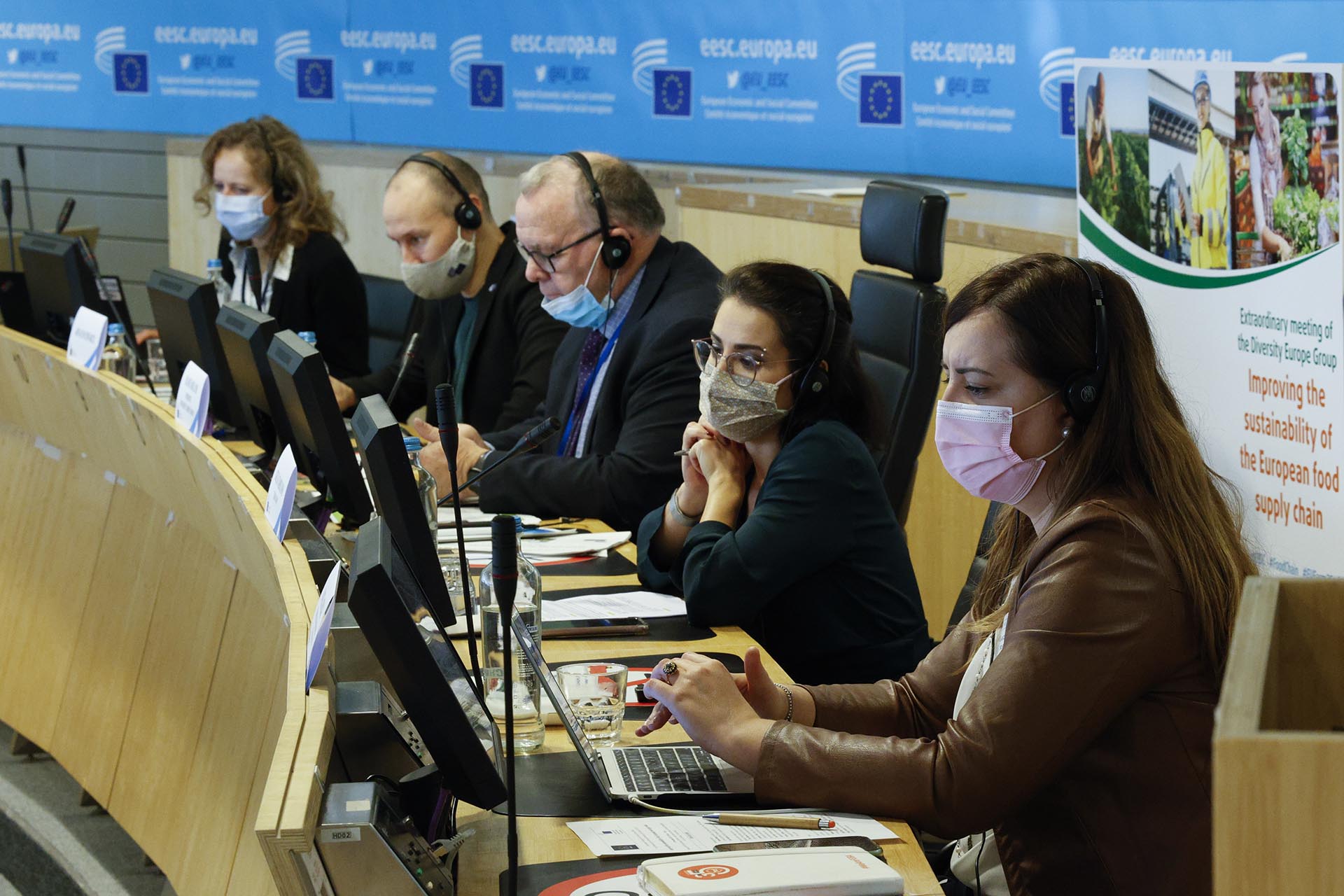FEBA intervenes at the extraordinary meeting of the EESC in the framework of the Slovenian Presidency of the Council of the EU
On 29 November 2021, the European Economic and Social Committee (EESC) organised an extraordinary meeting of the Diversity Europe Group on Improving the sustainability of the European food supply chain. The meeting was held in the framework of the Slovenian Presidency of the Council of the EU and of the Conference on the Future of Europe.
Acknowledging the demand for smarter, fairer, and more diverse food supply chains that are resilient to shocks and adhere to the notion of circularity and sustainability, as envisaged in the EU’s Farm to Fork Strategy, speakers with heterogenous backgrounds presented different institutional, agricultural, consumer, and environmental perspectives.
During the hybrid event taking place in Brussels, Ljubljana and online, FEBA made an intervention focussing on the improvement of food supply chain sustainability through the prevention of food waste and the concomitant potential to reduce food insecurity.
Starting off with an overview of FEBA’s current activities and the mission of its members, the presentation also shed light on the historic journey towards today’s achievements. Following that, EU level efforts to reduce food waste, including the establishment of the EU Platform on Food Losses and Food Waste, were mentioned to reiterate the importance of a collaborative and integrated approach. Through its innovative activities, FEBA Members adapted to changes of the legislative framework, awareness attitude of all stakeholders, and challenges imposed by the COVID-19 pandemic. Thereby, they contribute to the sustainability and resilience of the food supply chain on a daily basis. To nurture these endeavours on a larger scale, recommendations for the future were pointed out, comprising the fostering of implementation of EU instruments and policies at national level in relation to strengthened national legislative frameworks supporting and facilitating food donation and surplus food redistribution. Moreover, the development and implementation of integrated urban food system policies with Food Banks as key actors has been highlighted as crucial, whose efforts regarding increased digitalisation and innovation should be supported. This is in line with the need to raise awareness concerning the role played by Food Banks as an integral part of a sustainable, resilient, and inclusive food system.
More information here .
Read the conclusions and recommendations here.




